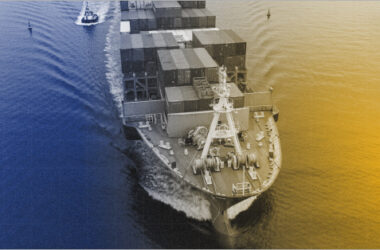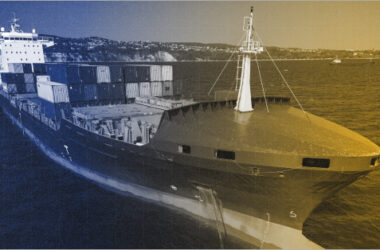In this article, we will explore what voyage deviation is and why it is important in Marine Insurance. We will discuss the various factors that can lead to deviation and the impact it can have on Marine Insurance coverage. By the end of this article, readers will have a clear understanding of this important concept and how it affects their Marine Insurance policies.
Understanding Voyage Deviation
Voyage deviation refers to a situation where a ship deviates from its original or agreed-upon route or voyage plan. This deviation can occur due to various reasons, such as weather conditions, mechanical problems or changes in cargo requirements.
When a ship deviates from its original route, it can have significant implications for its risk profile and the coverage under a Marine Insurance Policy. Marine cargo insurance policies typically cover goods for a specific transit and if a deviation occurs, insurers may reassess the risk. In some cases, an endorsement or additional premium may be required to continue coverage.
Most marine cargo insurance policies do not impose a direct warranty of seaworthiness on cargo owners. However, if a vessel is found to be unseaworthy and that contributes to a loss, insurers may deny a claim based on policy conditions. Therefore, it is crucial for cargo owners to ensure that they use reliable carriers who operate seaworthy vessels.
Shipowners and operators must also be aware that deviations can affect their liability for any damages or losses. If a deviation is considered unjustifiable, they may be held accountable for any resulting losses.
To mitigate risks, cargo owners should inform their insurers of any planned deviation before it occurs. The insurer will then assess the situation and may issue an endorsement to cover the additional risks.
Reasons for Voyage Deviation by a Ship
Several factors can lead to voyage deviation from the planned route. These reasons are broadly classified into permissible (justifiable) deviations and unjustifiable deviations, as recognised by maritime law and insurance policies.
Permissible (Justifiable) Deviations
- Saving Life at Sea
Under international maritime conventions, saving human life at sea is a fundamental obligation. If a ship deviates from its route to rescue individuals in distress, it is considered a permissible deviation. Marine Insurance policies typically recognise this as an acceptable reason and do not void coverage. - Safety of the Ship or Cargo
A ship may deviate if it faces unforeseen dangers that threaten its safety or the safety of its cargo. Examples include:
- Navigating around severe storms or cyclones.
- Avoiding areas of political instability, piracy or war.
- Seeking shelter at a nearby port to repair critical mechanical failures.
- Such deviations are often covered under the deviation clause in Marine Insurance policies, provided the actions are deemed reasonable and necessary.
- Compliance with Legal Orders
A ship may be compelled to deviate due to:
- Instructions from customs or port authorities.
- Government-imposed embargoes or quarantine regulations.
Marine Insurance policies generally allow deviations in such circumstances as they arise from external regulatory requirements.
- Medical Emergencies
If a crew member or passenger onboard requires urgent medical attention, the ship may alter its course to reach the nearest medical facility. Such deviations are considered permissible under Marine Insurance policies.
Unjustifiable Deviations
- Navigational Errors or Miscommunication
Accidental navigation errors or miscommunication between the crew and management may lead to unintended deviations. If these deviations occur due to safety reasons, insurers may still cover losses. However, if the error results from negligence, claims may be denied. - Commercial Convenience
Deviations for commercial reasons, such as stopping at an unauthorised port to load or unload additional cargo, are considered unjustifiable and often result in policy violations. - Economic Pressures
Some shipowners or operators might deviate from the planned route to save operational costs—such as avoiding tolls or taking shortcuts. These deviations, made purely for financial gain, are not permissible under Marine Insurance policies. - Unauthorised Changes to Route
If the captain or crew alters the route without valid reasons or without authorisation from the shipowner or cargo owner, it constitutes an unjustifiable deviation. Such changes could void the Marine Insurance Policy unless they arise from an emergency. - Acts of Piracy or Hijacking
While piracy is not a deliberate deviation by the ship’s crew, a hijacked ship may technically deviate from the planned route. Standard marine cargo insurance does not cover piracy unless the policy includes war and terrorism risk coverage. - Environmental Considerations (Emerging Trend)
Increasingly, ships may deviate to minimise environmental risks, such as avoiding marine ecosystems protected under international law. While these deviations are not always explicitly addressed in marine insurance policies, they may be considered permissible if they align with regulatory requirements.
Implications of Voyage Deviation in Marine Insurance
When a ship deviates from its intended voyage, it can have major implications for Marine Insurance policies:
- Policy Coverage Adjustments
If a deviation occurs, the insurer may reassess the policy. In some cases, insurers may require an additional premium or issue an endorsement to maintain coverage. - Increased Risk of Cargo Damage or Loss
If the deviation leads to entry into high-risk areas, such as those prone to piracy or extreme weather, the cargo may be at greater risk. This could result in higher premiums or denial of coverage. - Liability of the Carrier
If the deviation results in cargo damage, the carrier may be held liable. However, if the deviation was necessary for safety, the carrier may not be held responsible.
How Insurers Handle Voyage Deviation
When a vessel deviates from its planned voyage, insurers typically handle the situation in one of two ways:
- Allowing the Deviation and Adjusting the Policy
- The Marine Insurance Policy is updated to reflect the new voyage route and associated risks.
- Additional endorsements or premiums may be required.
- Requiring Prior Permission
- The cargo owner must inform the insurer before deviation.
- The insurer assesses the risk and decides whether to allow coverage to continue.
- In some cases, the insurer may require additional inspections or surveys.
By working closely with insurers, cargo owners can ensure their goods remain covered and avoid financial risks.
Case Studies on Voyage Deviation
Case Study 1: Delayed Arrival
A container ship suffered engine failure, delaying its arrival by two weeks. The insurance company reviewed the case, and since the delay did not result from a covered peril (such as a storm), certain claims were denied.
Case Study 2: Unauthorised Route
A tanker deviated into a high-risk piracy zone without prior approval. The vessel was attacked by pirates, resulting in cargo loss. Since piracy coverage was not included, the insurer denied the claim.
Final Thoughts
Voyage deviation is a critical aspect of Marine Insurance and must be managed carefully. Cargo owners should:
- Understand the deviation clause in their policies.
- Communicate with insurers before making route changes.
- Ensure adequate coverage, especially for high-risk deviations.
By adhering to policy conditions, cargo owners can minimise risks and ensure financial protection for their goods during transit.







